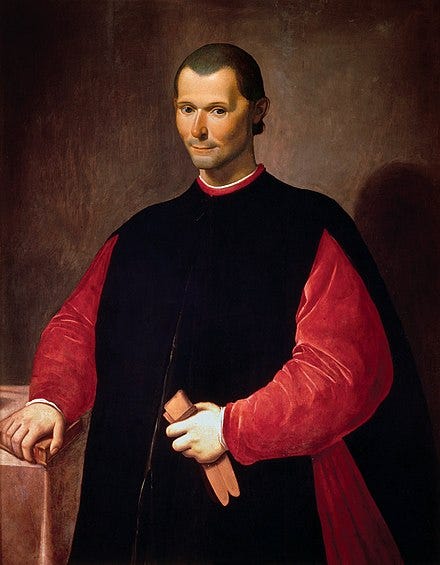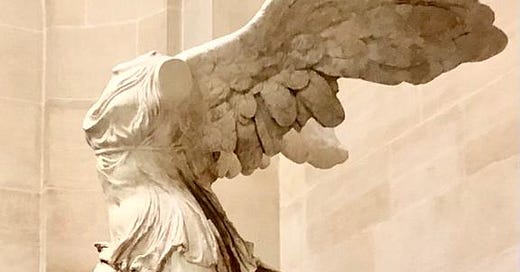The unsparing mirror of Niccolò Machiavelli
Of what use was a Christian soul to a prince? None, if it threatened the survival of the state, argued the father of political science.
{This is Who made our minds?, my weekly essay probing the greatest, cruellest and most beautiful minds, inspired by my book, The Soul: A History of the Human Mind (Penguin 2024). Next week: Christine de Pizan.}
‘MACHIAVELLIAN’ is a byword for manipulative power and cynical statecraft. The modern media wield the adjective as carelessly as they append ‘gate’ to a minor scandal, trivialising Niccolò Machiavelli’s thought and meaning.

Born into a noble Florentine family on 3 May 1469, Machiavelli lived in a world of city-states that were under constant threat of violent usurpation. Italy’s regional power struggles were not ‘religious’ in the way that the Protestant–Catholic conflict would be in northern Europe. In Italy, Roman Catholic spiritual power had long ago ceded ground to the political role of the church. Decades before Machiavelli appeared, Italian intellectuals and aristocrats were leisurely discussing pure political ideas in …



